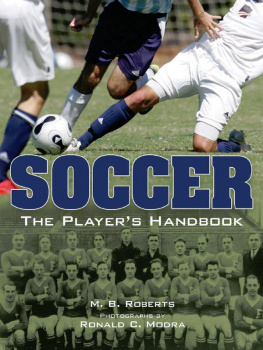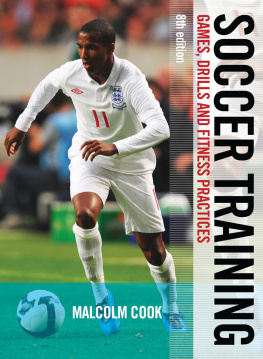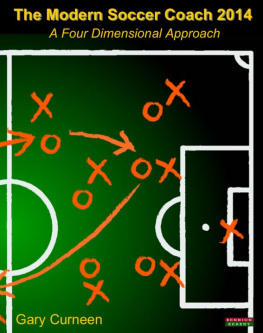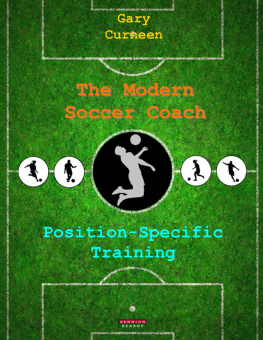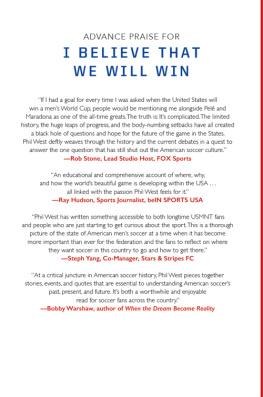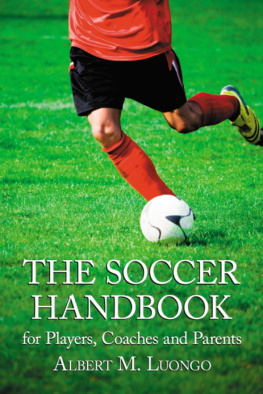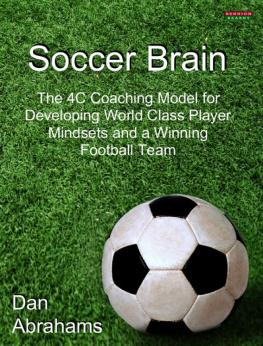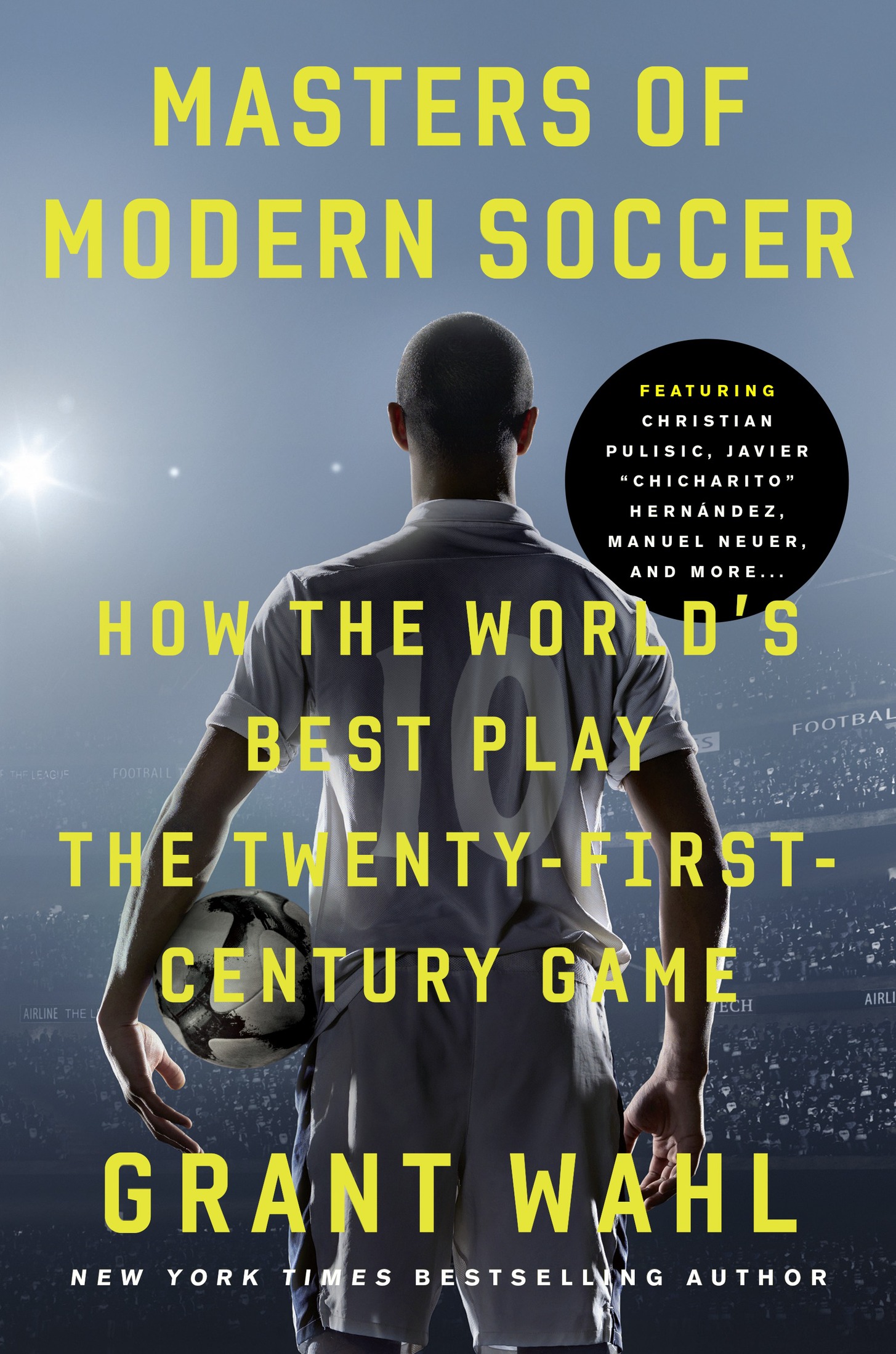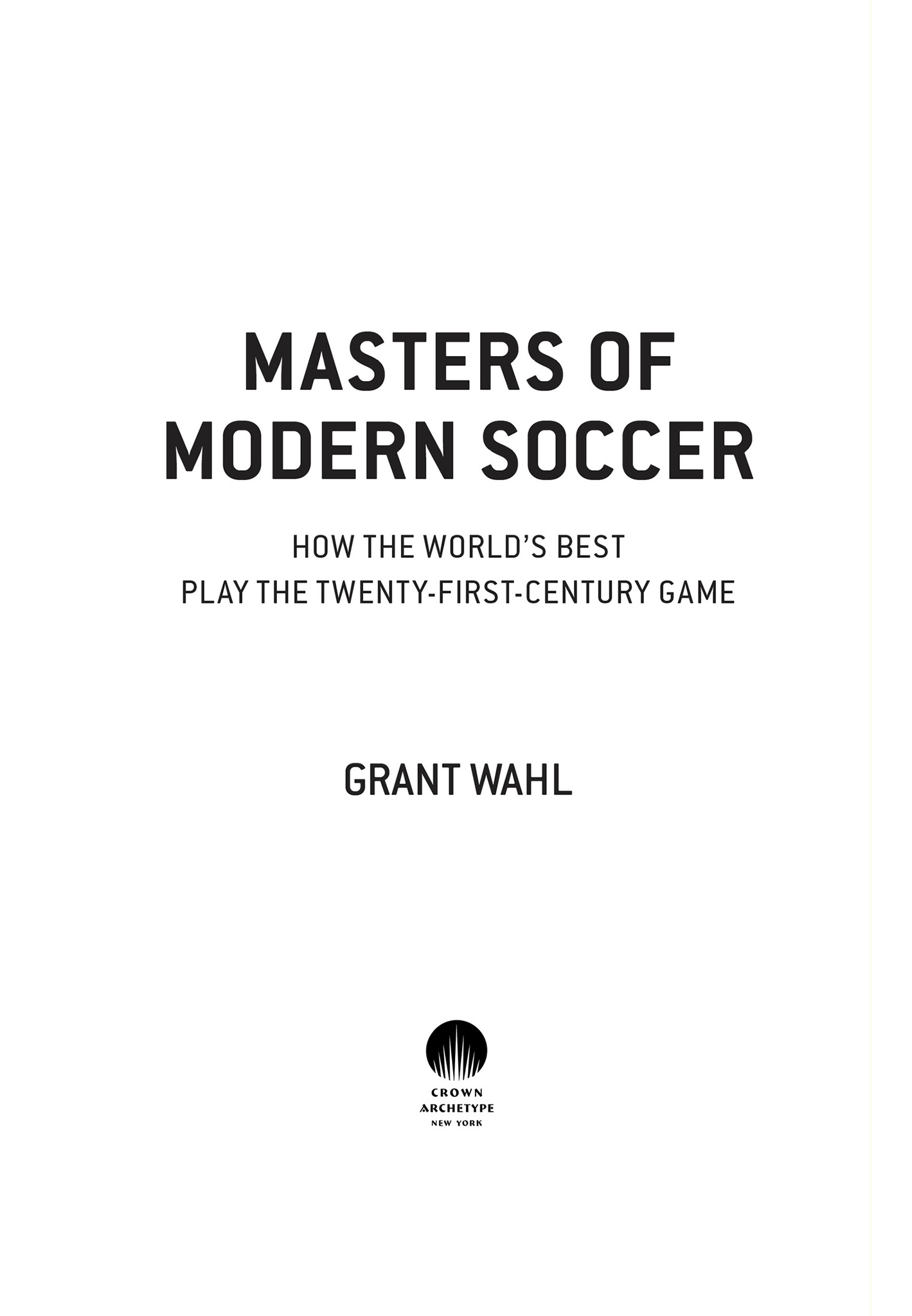ALSO BY GRANT WAHL
The Beckham Experiment
Copyright 2018 by Grant Wahl
All rights reserved.
Published in the United States by Crown Archetype, an imprint of the Crown Publishing Group, a division of Penguin Random House LLC, New York.
crownpublishing.com
Crown Archetype and colophon is a registered trademark of Penguin Random House LLC.
Library of Congress Cataloging-in-Publication Data
Names: Wahl, Grant, author.
Title: Masters of Modern Soccer : How the Worlds Best Play the Twenty-First-Century Game / Grant Wahl.
Description: First edition. | New York : Crown Archetype, [2018] | Includes index.
Identifiers: LCCN 2017053620 | ISBN 9780307408600 | ISBN 9780804137065 (eISBN)
Subjects: LCSH: Soccer. | Soccer players.
Classification: LCC GV943.W335 2018 | DDC 796.334dc23 LC record available at https://lccn.loc.gov/2017053620
ISBN9780307408600
Ebook ISBN9780804137065
International Edition ISBN9780525574965
Illustrations by Andrea Lau
Cover design: Gregg Kulick
Cover photograph: (soccer player/background) Dmytro Aksonov/E+/Getty Images; (soccer ball) TF-Images/Contributor/Getty Images
v5.2
ep
Cline
CONTENTS
1
THE MIDFIELDERS
2
THE FORWARD
3
THE DEFENDER
4
THE GOALKEEPER
5
THE MANAGER
6
THE DIRECTOR OF FOOTBALL
INTRODUCTION
When did I know for sure that I was going to love writing this book? The moment came early, on the first question of my first interview with Manchester City centerback Vincent Kompany. I had never met Kompany before, but I had admired him for years, and during my initial research for this book his name had come up repeatedly when I asked my journalist friends around Europe to nominate players who combined world-class talent and accomplishment with a high degree of intelligence and insight in interviews about the sport. My question was simple enough: What does the term the modern game mean to you?
Kompany considered the topic briefly and answered. I think the term modern football just means that every single aspect of the game has improved, he said. Players are quicker now. They try to play quicker and see the pass quicker. Players try to be more technical. Players are more physical. Maybe theyre not tougher, because that sometimes has to do with their background, but the physical attitudes have definitely increased. So the modern game is all about an improved version of what it used to be.
What followed in that first interview was an hour-long discussion about the sport that left me exhilaratedand looking forward to more opportunities to speak to Kompany and the other figures in this book. The results of those interviews are in the following chapters. Everything they shared with me I will pass on to you.
Its easy to be cynical about modern soccer. For some observers, the modern game speaks mostly to the influence of money and commercialization on the sport, which is undeniable. To the critics, the apotheosis of modern soccer was probably the moment in July 2017 when the players of Manchester United and Real Madrid, on a promotional preseason tour in the United States, all high-fived a guy in a red-wigged Ronald McDonald costume before kickoff in an NFL stadium as though he were an actual player in the game. But over the two years of reporting for this book, my conversations with the seven practitioners in Masters of Modern Soccer overpowered any cynicism I might have had and gave me a heightened appreciation for the modern gamefor the craft of the sport, position by position, and all the nuances that come with it. Kompany is right. Soccer is being played at a higher level than ever before, and by more players in more places than at any point in the history of the sport.
All the participants in this book give us an insiders view of soccer at the highest level, revealing how they experience and process the modern game. Manuel Neuer of Bayern Munich and the German national team explains how he redefined the goalkeeper position, making sweeper keeper part of the global soccer lexicon. Kompany, the Man City and Belgium veteran, shows why he is among todays shrinking group of world-class centerbacks, detailing the tricks of the trade for defenders in a time of high back lines and full-field pressureas well as his decision making on when to push forward with the ball at his feet. Xabi Alonso, who won Champions League titles with Liverpool and Real Madrid and the World Cup with Spain, may be fond of the phrase old school, but his approach to the defensive midfield is decidedly modern. That includes his technical and positional mastery, his control of tempo, and his ability to change formations within the same game and tailor his own game to the needs of different teammates at different clubs. Christian Pulisic, the budding superstar attacking midfielder for the United States and Borussia Dortmund, speaks at length of his relentless pursuit of progress, his refusal to go sideways or backward, and his elemental desire to break ankles and beat defenders one-on-one. For his part, Mexican forward Javier Chicharito Hernndez extols the virtues of constant movement in the penalty box and his desire to be a complete forward who does everything possible to be ready for the next game in a punishing modern schedule. Roberto Martnez, the Belgian national team coach, realizes the benefits of adaptation: to new playing styles, to new ways of thinking, and even to new countriesall while finding his own strong voice and making his teams better than the sum of their parts. And Borussia Dortmund sporting director Michael Zorc? All he did was respond to the near-bankruptcy of his hometown club by devising a strategy that sustained a new business model and allowed Dortmund to compete for trophies against rivals with far more moneya fact of life in modern soccer, which has no salary caps.
The modern game has more choreography than you might expect, and not just from set pieces, as we learn from the systematic patterns in the run of play used by Chicharito and the Mexican national team. And while there is less interchangeability of positions today than there was in the 1970s heyday of Total Football, the increasing specialization of positions in modern soccer requires a bigger skill set than it did in the past. Its not enough for a goalkeeper just to stop shots anymore; he also has to distribute the ball and cover the area outside the penalty box behind his high back line. Its not enough for a centerback to lock down the opposing striker; he also has to be a key figure starting the attack. Its not enough for a central midfielder to ping passes around; he has to be in the perfect positionnot even two yards askanceor his team will be punished in a heartbeat on the counter. And its not enough for a forward just to score goals anymore; he has to be the first harassing line of defense.
The specialization of the modern game extends to management as well. As Ill argue in the pages ahead, having a head coach to prepare the first team and a separate director of football to focus on long-term strategy and player acquisitions is a smart solution for the demands of the sport in the 21st century. Asking a traditional English-style manager to be responsible for all those tasks is asking for dysfunction.


